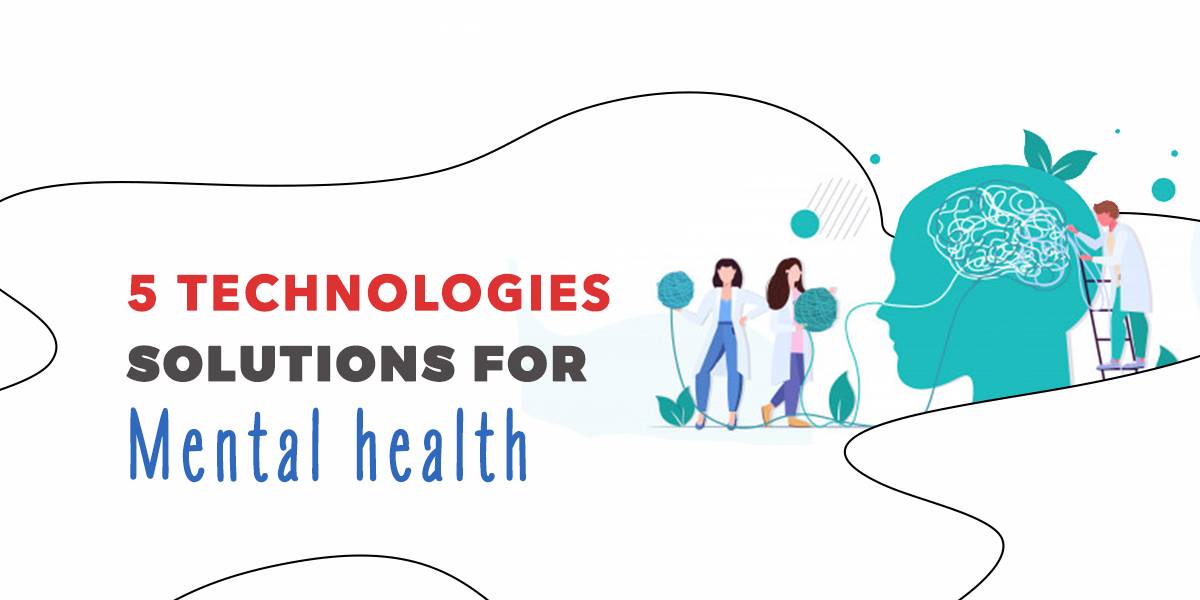Mental health has become one of the most critical aspects of overall well-being, yet it remains a field that is under-resourced and often misunderstood. In recent years, the need for accessible, effective, and scalable solutions to support mental health has never been more apparent. As we approach 2025, the mental health landscape is evolving rapidly, and technology is playing a crucial role in transforming how we understand, treat, and manage mental health challenges. With the power of innovation, new technologies, and user-centered design, mental health tech startups are set to disrupt the space and create meaningful change.
The rise of digital health solutions, especially in mental health, has given birth to a thriving market for tech-driven startups aiming to address mental health issues. Whether it’s through the use of artificial intelligence (AI), telehealth platforms, or wellness apps, startups are finding innovative ways to make mental health support more accessible, efficient, and scalable. Mental health tech is no longer just about offering therapy; it’s about creating a comprehensive ecosystem of solutions that can address everything from early intervention to long-term care and recovery.
The importance of supporting mental health in 2025 is underscored by increasing public awareness of mental health issues, the mental health crisis in the workplace, and the global stressors exacerbated by events such as the COVID-19 pandemic. With so many individuals suffering from mental health challenges, the demand for effective tools and resources is soaring. This demand has opened up a world of opportunities for entrepreneurs who want to make a positive impact. Whether you’re interested in launching a mental health app or leveraging AI to improve diagnostic tools, now is the perfect time to dive into the mental health tech space.
AI-Driven Mental Health Platforms
One of the most promising areas of growth in mental health tech is the use of artificial intelligence (AI) to create personalized, scalable solutions. AI-powered platforms are already being used to help diagnose mental health conditions, monitor symptoms, and even provide therapy. In 2025, we can expect these technologies to become even more advanced, offering real-time support and highly customized solutions for individuals.
AI-driven mental health platforms have the potential to assess an individual’s mental health based on their behavior, language, and even physiological data. By using natural language processing (NLP) and machine learning algorithms, AI can analyze text, voice, and video interactions to provide real-time mental health assessments. These platforms can identify early signs of mental health conditions such as depression, anxiety, and stress, enabling early intervention before conditions worsen.
Startups that focus on AI-driven mental health solutions can benefit from the growing demand for personalized healthcare. By offering platforms that are tailored to an individual’s unique needs, startups can help people manage their mental health proactively. AI-powered mental health apps could also offer personalized recommendations for self-help exercises, mindfulness practices, or therapy sessions based on the individual’s symptoms and progress. These innovations can help break down barriers to mental health care by providing on-demand, accessible support.

Telehealth and Virtual Therapy Solutions
Telehealth has become a mainstream solution for many healthcare fields, and mental health is no exception. With the rise of telehealth platforms, individuals can access mental health professionals remotely, making it easier than ever to receive care from the comfort of their own homes. This has been especially important during the COVID-19 pandemic, as many people turned to online therapy to avoid in-person sessions.
As we move toward 2025, telehealth and virtual therapy startups will continue to grow, offering more sophisticated features and expanded access to services. Virtual therapy platforms are likely to incorporate AI and machine learning to better match individuals with the right therapist or counselor based on their specific needs. Some platforms might even offer asynchronous therapy, allowing individuals to communicate with their therapist through messages, voice recordings, or video uploads without requiring real-time interaction.
For mental health tech startups, the focus should be on improving the telehealth experience to make it more personalized, efficient, and accessible. Integrating mental health tools into telehealth platforms—such as symptom tracking, mental health assessments, and personalized wellness plans—can provide a more comprehensive care experience. Additionally, expanding the reach of telehealth platforms to include underserved populations, such as those in rural areas or with limited access to traditional healthcare, can help ensure that everyone has access to the mental health care they need.
Mental Health Apps and Wellness Tools
In 2025, mental health apps and wellness tools will continue to play a significant role in improving people’s mental well-being. These apps are not only helping users manage stress, anxiety, and depression, but they also provide valuable resources for those looking to improve their overall mental health. Wellness tools, such as mindfulness apps, sleep trackers, and mood journals, can support users in managing daily stressors and building healthy mental habits.
For entrepreneurs in the mental health space, there is an opportunity to develop apps that combine multiple tools into one cohesive platform. For example, an all-in-one wellness app could include features such as meditation, cognitive-behavioral therapy (CBT) exercises, breathing exercises, and mood tracking. By offering a comprehensive approach to mental health, these apps can provide users with the resources they need to improve their mental well-being on a daily basis.
Another key opportunity lies in the development of digital services aimed at improving mental health in the workplace. With growing awareness of burnout and stress-related issues, companies are increasingly investing in employee well-being. Startups that create mental health apps for businesses—offering tools for stress management, employee wellness programs, and resources for building a healthy work culture—will be able to tap into a lucrative market. The integration of such tools into existing corporate wellness programs can help create a more balanced and productive workforce.
Wearable Technology for Mental Health Monitoring
Wearable devices are transforming the way we monitor our health, and mental health is no exception. Wearables like fitness trackers and smartwatches already track physical health metrics, but new innovations are focusing on mental health. In 2025, we can expect wearable technology to play an even larger role in monitoring mental well-being, providing real-time data on stress levels, emotional states, and sleep quality.
Startups focusing on wearable mental health technology can explore opportunities in developing devices that track biometrics such as heart rate variability, skin conductance, and sleep patterns to provide insights into an individual’s mental state. These devices can help users identify triggers for anxiety, depression, or stress, enabling them to take proactive steps to manage their mental health. For example, wearables that provide biofeedback can guide users through breathing exercises or mindfulness techniques to help them calm down during stressful situations.
The integration of wearable technology with AI could further enhance these tools by providing personalized recommendations based on real-time data. For example, a wearable device might suggest a meditation session or breathing exercise when it detects that a user’s stress levels are elevated. By combining biometric data with personalized mental health solutions, startups can offer a holistic approach to mental health monitoring and intervention.
Peer Support and Community Platforms
Mental health is often seen as a deeply personal issue, but social support can play a critical role in recovery and well-being. Peer support platforms are becoming an essential part of mental health care by providing a space where individuals can share their experiences, offer advice, and support each other. These platforms help reduce the stigma surrounding mental health by creating a sense of community and normalizing conversations about mental well-being.
Startups that focus on creating peer support platforms can tap into the growing demand for social connections and community-driven mental health support. These platforms can provide anonymous, moderated spaces for individuals to connect with others who are facing similar challenges. Features such as group therapy sessions, discussion forums, and support circles can foster a sense of belonging and empower individuals to take control of their mental health journey.
Additionally, integrating AI into peer support platforms can help match individuals with others who share similar experiences or challenges, ensuring that they find the right support group. By combining human interaction with technology, peer support platforms can offer a unique and valuable approach to mental health care.
Sustainable Business Models in Mental Health Tech
As the mental health tech industry grows, startups must also consider sustainable business models that prioritize the long-term well-being of both users and the business itself. Sustainability in mental health tech goes beyond just environmental concerns—it involves building a business that is ethical, inclusive, and transparent in its practices. Startups in this space must focus on creating products that genuinely support mental health without exploiting users for profit.
Sustainable mental health tech businesses should prioritize user privacy, ensure that their services are accessible to all individuals (regardless of income or background), and work to reduce the stigma around mental health. By focusing on social impact and creating a business model that prioritizes people over profit, startups can establish long-term credibility and trust with their users.
Incorporating sustainable businesses into the ethos of mental health tech startups can also include adopting eco-friendly practices, such as reducing energy consumption, using recyclable materials, or minimizing the environmental impact of digital services. As consumers become more conscious of sustainability, startups that integrate these values into their business models will be well-positioned for success.
Conclusion
As we move into 2025, mental health tech startups have the opportunity to make a transformative impact on society by developing innovative solutions that improve mental well-being and provide greater access to care. Whether through AI-powered platforms, telehealth solutions, wearable technology, or peer support networks, the potential for disruption in the mental health space is enormous. Startups that embrace technology, empathy, and accessibility will be able to create meaningful change in an industry that is only beginning to realize its full potential.
By staying informed about business trends and leveraging emerging technologies, entrepreneurs can position themselves to build impactful businesses that address the pressing mental health needs of 2025 and beyond. For further insights and inspiration on how to navigate this growing sector, explore more on our blog and discover actionable ideas that can drive innovation in mental health technology.

